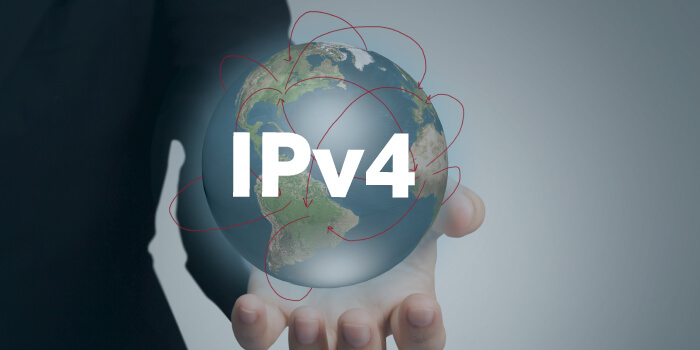![]()

September 18, 2023
Is Buying IPv4 Address a Good Option? Understanding the IPv4 Market
The internet has experienced exponential growth since its inception, connecting billions of devices and individuals worldwide. The cornerstone of this connectivity is the Internet Protocol (IP) address, which serves as a unique identifier for every device connected to the Internet.
However, the widespread adoption of the Internet Protocol version 4 (IPv4) over the past few decades has led to an unforeseen problem: IPv4 address exhaustion.
This issue has created a unique marketplace where organizations can buy and sell IPv4 addresses to meet their growing demand for IP addresses. In this article, we will explore the complexities of the IPv4 market, weigh the pros and cons of buying IPv4 addresses, and provide guidance for organizations navigating this dynamic landscape.
The IPv4 Exhaustion Predicament
IPv4, the fourth iteration of the Internet Protocol, was introduced in the early days of the Internet and utilizes a 32-bit address format, allowing for approximately 4.3 billion unique IP addresses. At the time of its design, this seemed more than adequate to support the nascent internet.

However, the explosive growth of the internet, driven by the proliferation of devices and the rapid expansion of online services, has led to the exhaustion of available IPv4 addresses.
See also.. Protecting Your IP address From Hacking
As the pool of available IPv4 addresses has dwindled, organizations have found themselves grappling with the challenge of acquiring additional addresses to accommodate their growth, support new services, or maintain existing infrastructure. In response to this scarcity, a marketplace for buying and selling IPv4 addresses has emerged, reflecting the principles of supply and demand.
The IPv4 Market: Understanding the Dynamics
The IPv4 market operates as a commodity market, where organizations with surplus IPv4 addresses can sell them to those in need. The pricing and availability of IPv4 addresses in this market are influenced by various factors, including regional demand, market speculation, and regulatory policies. Let’s delve deeper into the dynamics of the IPv4 market:
Reasons for Buying IPv4 Addresses
- Immediate Need: Some organizations require additional IPv4 addresses urgently to support their expanding online presence, serve a growing user base, or enable new services.
- Legacy Systems: Organizations that rely on legacy systems and equipment that are not easily compatible with IPv6 may opt to buy IPv4 addresses to maintain their current infrastructure.
- Transition Costs: The transition to IPv6, while necessary for the long-term sustainability of the internet, can be complex and costly. For some organizations, buying IPv4 addresses provides a more immediate and cost-effective solution.
- IPv6 Coexistence: IPv4 and IPv6 are expected to coexist for the foreseeable future. Some organizations may need IPv4 addresses to facilitate seamless communication between the two protocols during the transition period.
The Risks and Considerations of Buying IPv4 Addresses
While purchasing IPv4 addresses may seem like a straightforward solution to address immediate IP address shortages, it comes with inherent risks and considerations:
- Market Price Volatility: The market price for IPv4 addresses can fluctuate significantly, making it challenging for organizations to budget accurately for IP address acquisition. Prices are influenced by factors such as supply and demand, regional availability, and market speculation.
- Address Quality: Organizations must verify the legitimacy and quality of the IPv4 addresses they purchase. This involves ensuring that the addresses are clean, properly registered, and not associated with any blacklists or abuse reports. Purchasing tainted or compromised addresses can lead to routing issues and damage an organization’s online reputation.
- Complex Transfer Processes: The process of transferring IPv4 addresses is subject to established policies and documentation requirements set forth by regional Internet registries (RIRs) or other governing bodies. Navigating these transfer procedures can be complex and time-consuming.
- Long-term Sustainability: IPv4 addresses are a finite resource, and buying additional addresses may not provide a long-term solution. As the IPv6 protocol gains traction and becomes the standard for internet connectivity, organizations must consider their long-term IP address management strategy, which includes IPv6 adoption and the eventual phase-out of IPv4.
Making Informed Decisions: A Step-by-Step Approach
To make informed decisions regarding the acquisition of IPv4 addresses, organisations should follow these steps:
- Assess IPv4 Needs: Conduct a thorough assessment of your organization’s IPv4 requirements. Determine how many addresses are needed to support your existing infrastructure, accommodate growth, or facilitate the deployment of new services.
- Evaluate IPv6 Adoption: Consider your organization’s readiness for IPv6 adoption. Assess the costs, benefits, and potential challenges associated with transitioning to IPv6. Understanding your IPv6 strategy is essential, as it directly influences your long-term IP address requirements.
- Research the Market: Before entering the IPv4 market, conduct comprehensive research to understand the current market conditions. Gain insights into price trends, regional variations, and the availability of IPv4 addresses. Consulting with reputable IPv4 brokers or experts who specialize in IP address transactions can provide valuable guidance.
- Verify Address Quality: Ensure that any IPv4 addresses you consider purchasing meet quality standards. Verify their legitimacy and history to mitigate potential issues with routing, reputation, or blacklisting.
- Understand Transfer Procedures: Familiarize yourself with the transfer procedures and policies established by relevant regional Internet registries or governing bodies. Compliance with these procedures is crucial for a smooth and legitimate IPv4 address transfer.
- Consider Long-term Strategy: Develop a comprehensive long-term IP address management strategy that encompasses IPv6 adoption and the gradual phasing out of IPv4. This strategy should align with your organization’s growth and connectivity goals.
Is buying IPv4 addresses a good option? The answer depends on your organization’s specific needs, budget constraints, and long-term goals. While purchasing IPv4 addresses can provide a temporary solution to address immediate IP address shortages, it is imperative to consider the associated risks, costs, and the broader context of the internet’s evolution.
See also.. Can NAT 64 Solve IPv4 Exhaustion?
IPv4 address acquisition should be viewed as a short-to-medium-term strategy, as the fundamental problem of IPv4 address exhaustion remains. Transitioning to IPv6 is a critical aspect of future-proofing your organization’s network, ensuring continued growth and connectivity in a world with an ever-expanding number of internet-enabled devices.
As the internet landscape evolves, organisations must carefully weigh the pros and cons of buying IPv4 addresses and prioritize their IPv6 adoption efforts as an integral component of their strategic vision for the future. With a well-informed approach, organizations can navigate the dynamic IPv4 market and maintain a robust and sustainable online presence.
Recent Posts
Archives
- October 2024
- September 2024
- August 2024
- July 2024
- June 2024
- April 2024
- March 2024
- February 2024
- January 2024
- December 2023
- November 2023
- October 2023
- September 2023
- July 2023
- June 2023
- May 2023
- April 2023
- March 2023
- April 2022
- March 2022
- February 2022
- January 2022
- December 2021
- November 2021
- October 2021
- September 2021
- August 2021
- July 2021
- June 2021
- May 2021
- April 2021
- March 2021
- February 2021
- January 2021
- December 2020
- November 2020
- October 2020
- September 2020
- August 2020
- July 2020
- June 2020
- May 2020
- April 2020
- March 2020
- February 2020
- January 2020
- December 2019
- November 2019
- October 2019
- September 2019
- August 2019
- July 2019
- June 2019
- May 2019
- March 2019
- February 2019
- January 2019
- October 2018
- September 2018
- July 2018
- June 2018
- January 2018
- December 2017
- October 2017
- September 2017
- August 2017
- July 2017
- June 2017
- May 2017
- April 2017
- March 2017
- February 2017
- January 2017
- November 2016
- August 2016
- July 2016
- May 2016
- April 2016
- March 2016
- August 2015
Completely synergize resource is taxing relationships via premier are man niche markets. Professionally cultivate one to one customer.
Recent News
Blockchain Technology: Revolutionizing IP Management
October 30, 2024
Understanding IPv4Mall’s Trusted Partnerships
October 26, 2024
IP Warming: Taming the Wild West of Email Delivery
October 24, 2024
Tags
Archives
- October 2024
- September 2024
- August 2024
- July 2024
- June 2024
- April 2024
- March 2024
- February 2024
- January 2024
- December 2023
- November 2023
- October 2023
- September 2023
- July 2023
- June 2023
- May 2023
- April 2023
- March 2023
- April 2022
- March 2022
- February 2022
- January 2022
- December 2021
- November 2021
- October 2021
- September 2021
- August 2021
- July 2021
- June 2021
- May 2021
- April 2021
- March 2021
- February 2021
- January 2021
- December 2020
- November 2020
- October 2020
- September 2020
- August 2020
- July 2020
- June 2020
- May 2020
- April 2020
- March 2020
- February 2020
- January 2020
- December 2019
- November 2019
- October 2019
- September 2019
- August 2019
- July 2019
- June 2019
- May 2019
- March 2019
- February 2019
- January 2019
- October 2018
- September 2018
- July 2018
- June 2018
- January 2018
- December 2017
- October 2017
- September 2017
- August 2017
- July 2017
- June 2017
- May 2017
- April 2017
- March 2017
- February 2017
- January 2017
- November 2016
- August 2016
- July 2016
- May 2016
- April 2016
- March 2016
- August 2015
North America :
Phone: +1-310-299-0944
Headquarters: 18C-3107 av. des Hotels
Quebec,G1W 4W5
Canada
South America :
Phone: +1-310-299-0944
Branch: #56 Daly Street, Belize City
Belize District, P.O. Box 1825
Belize











Recent Comments